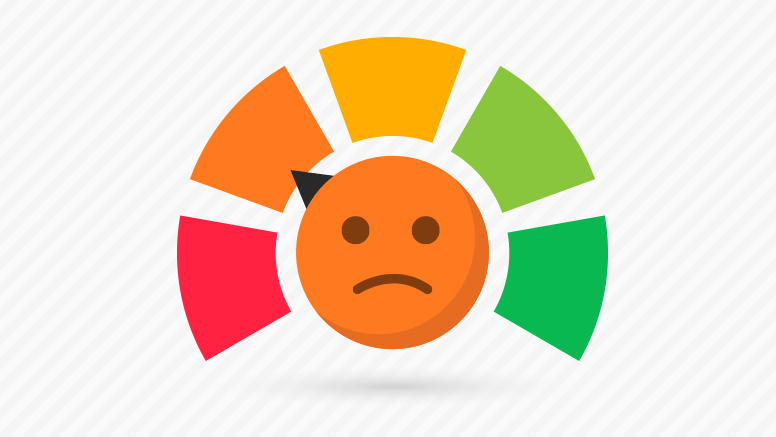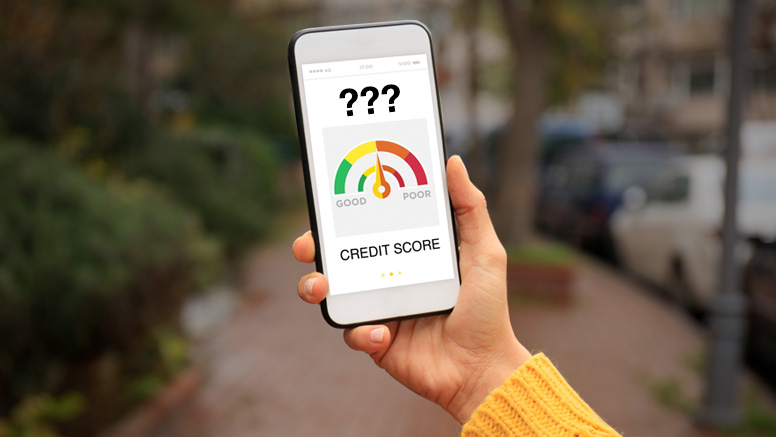What Happens to My Credit Score During Debt Resolution?
When consumers consider their debt solutions, credit scores tend to be a big concern. However, if you’re facing crushing debt and looking for a way out, worrying too much about your score may be keeping you from taking crucial action. Is it worth it to pursue a debt solution if your score could change?
Fortunately, there are options, like debt resolution, that could improve your credit in the long run while helping you regain control of your finances — but how? In this piece, we’ll take a look at what really happens to your credit score when participating in a debt resolution program. Here are three things we’ve noticed when it comes to our clients:
1. Historically, We’ve Seen Clients’ Scores Improve As They Progress Through and Graduate From Your Program
When enrolling in a debt resolution program, focusing on the long-term goal is key. As your debts are resolved, your total amount of debt is reduced. This is great news for your credit score, as credit balances and utilization account for 30% of your FICO score.
If the delayed payments at the start of your program are causing concern, there’s good news: our data shows delinquent payments have less influence on your credit score over time. Our program graduates have reported these results as well; of those who began their program with a poor score (below 579), 81.6% reported an improved score by the time they graduated. As for those who had a fair score (580-669), 85.7% reported that their score recovered or improved upon program completion.*

Additionally, less debt means a better debt-to-income ratio, which could help greatly if you plan on applying for new credit in the future. 41% of our recently graduated clients reported being able to take on new forms of credit, like credit cards, car loans and home mortgages, soon after finishing their program.*
2. Improvement Tends To Come After An Initial Drop
Like many debt strategies, debt resolution can temporarily lower your credit score — but why?
One of the most important steps clients are asked to take when starting a debt resolution program is to delay payments on all of their enrolled debts. This is a strategic choice that helps create the leverage that your debt resolution company needs to secure more favorable terms on your behalf. Initially, this change in payment may be viewed by your creditor as a non-payment or delinquency. Since delinquent payments account for 35% of your FICO score, this pause in payments is usually the cause for the drop.

It’s important to remember that you’re merely delaying payment to your creditors — they’ll still get paid, but it will be under the new, more favorable terms pursuant to agreements that your company has secured for you. Additionally, these new agreements often allow you to pay off your financial obligations for much less than what you originally owed. This allows you to keep more money in your pocket every month while also putting your debts behind you faster.
3. Healthier Financial Habits Are Developed, Which Can Help Boost Your Credit Score
Credit scores aren’t all about your payment history — here are the other factors that go into calculating your score:
- How you use your credit
- The size of your balances
- The mix of credit you have
- How often you apply for new credit
- How old your accounts are
When you work through a debt program, you tend to pick up habits that leave a positive impact on your credit score and overall financial health. These habits include making consistent deposits towards your Dedicated Account, as well as avoiding things like taking on new debt or adding to your current balances.
Our Beyond Finance clients definitely notice a difference in their financial health and behaviors; 91% of program graduates who initially self-reported having poor financial habits felt that their money behaviors improved after completing their program.*

Your Credit Score Shouldn’t Be A Priority When in Debt
If credit score woes are still keeping you from pursuing debt help, consider this: is it more important to have a high credit score or to finally be debt-free?
Credit scores are usually referred to when a person is trying to access a new line of credit, like a loan or a credit card. If you’re in serious debt and having trouble paying it off, it’s usually not a great idea to dig your hole deeper with more debt. Instead, we feel your focus should be on overcoming your existing debt as soon as possible so you can put your future earnings towards the things that matter most to you.

Additionally, credit scores aren’t fixed — you have the ability to improve over time. Worrying about having a high enough score to get a mortgage ten years from now doesn’t do much to help your debt problems today. Making steps to fix your present-day finances, on the other hand, can help you create the solid foundation you need to pursue your financial goals in the future.
*This data comes from a survey of recently graduated clients (within the past three months) obtained from October-December 2021.
